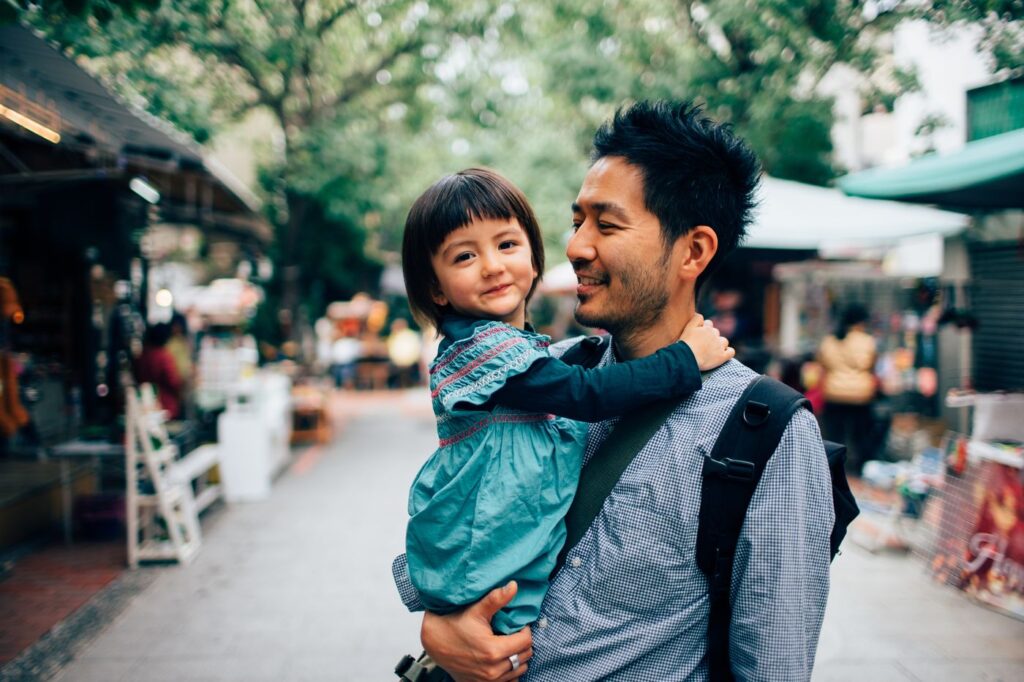The Long-Term Benefits of Hands-On Fathering
By Susan Pinker
https://www.wsj.com/articles/the-saving-reach-of-social-connections-a81c7b41
The blockbuster movie “Barbie” depicts men as utterly useless. The film’s younger guys dress in fake fur and act like Neanderthals, while the middle-aged men who have jobs are portrayed as incompetent nincompoops. Some are eye candy for the Barbies, but they’re all socially awkward. They can’t even play the guitar.
In the real world, however, there is at least one thing men are good at: playing with their babies. Over the last 20 years, research has consistently shown that fathers have a unique way of engaging with small children. Horsing around is more common with fathers than it is with mothers, especially as infants grow into toddlers and preschoolers. Vigorous bouncing, lifting, tossing and chasing take over from more gentle play, and this roughhousing leads to better self-control and school readiness as children turn 5, studies show. The father’s rough-and-tumble play is also connected to better gross-motor skills in the child, regardless of the father’s income or education level.
A vast new study, published in the journal Pediatric Research this past summer. adds weight to the idea that a father’s hands-on involvement underpins a child’s later ability to self-regulate and problem-solve. Led by Tsuguhiko Kato, a researcher at Japan’s National Center for Child Health and Development, the study started with over 100,000 Japanese babies born between January 2011 and March 2014. The researchers narrowed the group to first-born, healthy, singleton infants; babies whose mothers had experienced any post-partum depression, or who were hard to soothe at one month of age, were also excluded.
The result was a sample of 28,040 children. At intervals of six months, from one month of age to their third birthday, each child’s mother was asked to rate the father’s participation in early child-rearing, including feeding, changing diapers, bathing, dressing, playing at home or outdoors, and putting the child to sleep. Japanese fathers are typically less involved in child-rearing than North American fathers, but when the researchers examined the children’s milestones at age 3, they discovered that children whose fathers invested more time in their care showed better gross and fine motor skills, problem solving, and social skills than children whose fathers were not as involved.
There was no difference between the language skills of kids with involved versus aloof fathers. But “the risk of developmental delay in children with highly involved fathers was 24% lower,” said Dr. Kato. That’s a significant benefit, worth overcoming the many obstacles that can prevent fathers from being involved in child-rearing, such as a long commute, unpredictable work hours or family dynamics.
Because the father’s involvement was rated by the mother, it’s possible that the quality of the parents’ relationship may have influenced the series of assessments. “Children with parents who are in a good relationship could be in a good position,” Dr. Kato said. “There could be some bias related to the marital relationship that influences child outcomes.”
Raising small children is stressful. If the mother thinks the father is reducing the strain of nurturing their baby, she may give him high marks. But if she thinks he’s as useless as a Ken doll, she may not even let him try.
Appeared in the September 23, 2023, print edition as ‘The Long-Term Benefits Of Hands-On Fathering’.


